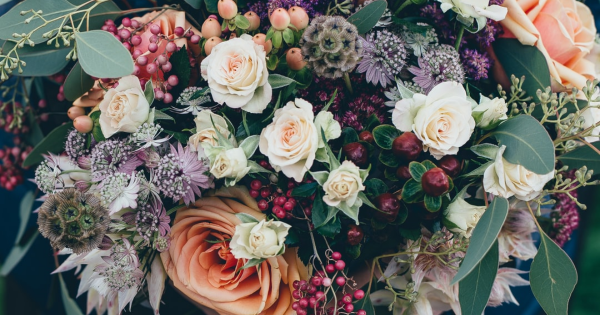Four Popular Types Of Flowers You Should Consider For Your Wedding
While you can rely on your florist to help you create your bouquet and arrangements, you need to choose your wedding flowers first.

Did you know that the floral industry is worth over $100 billion? There is a lot more the floral industry than what meets the eye initially, but it's true that the backbone of the industry is of course the wedding space. Weddings almost always require the help of a professional florist. Not only are bouquets generally carried by not only brides but bridesmaids, as well as the petals used by flower girls; weddings are also often heavily decorated by floral arrangements.
While DIY is becoming more popular in certain spheres, flowers are something that a number of brides and grooms have discovered are not great options for DIY in general. A lot of work goes into making bouquets and floral arrangements, and sourcing flowers is often easier said than done.
While you can rely on your florist to help you create your bouquet and arrangements, you need to choose your wedding flowers first. A lot of this will be based on your theme, as well as your color scheme. But certain flowers do become classics within weddings for a reason, and are often easily made available through a florist. Let's find out more about them!
1. Tulips
Tulips are somewhat legendary within the flower world, and with good reason. In the Golden Age of the Netherlands, an economic obsession known as "tulip fever" swept the nation. Merchants and shoppers alike were focused on buying and even creating the perfect tulips, and selling tulips at an inflated cost. To this day, tulips remain a gorgeous flower beloved by many. They come in a variety of different shades and color patterns, which makes them perfect for a wedding. Tulips are available for most of the year, and can either be extremely affordable or quite costly depending on the variation that you want. Though they're often associated with the spring and summer due to the availability of pastel tulips, they can also be beautiful additions to a fall or winter wedding.
2. Lilies
Lilies have an inherent romanticism to them, making them popular among florists and wedding planners alike. There are also a number of different types of lilies, some of which look quite different from others. The lily of the valley, for example, features many small blooms dangling from a thin stem. Lilies of the valley are commonly used for spring weddings, which harkens back to them being associated with Ostara, the goddess of springtime. They're so popular that Kate Middleton used them in her wedding bouquet! Another popular wedding lily is the calla lily, elegant enough to be used both in bouquets and boutonnieres. These lilies are often used in their cream forms but can look especially striking in their dark purple forms.
3. Peonies
Peonies are known for looking beautiful in a bouquet while also smelling amazing. Traditionally associated during the Victorian era with bashfulness, they add a soft look to any wedding, and are usually available during the spring and summer, though they can be imported during the fall. Peonies are pricey, but for many, they're well worth the cost. Discuss using herbaceous peonies with your florist, rather than tree peonies. While tree peonies are gorgeous too, they often wither faster and therefore might not survive the flower delivery process, even when they're well cared for.
4. Sweet Peas
Sweet peas are remarkably tender looking flowers, and are extremely in popular in England for those Anglophile brides out there! However, these flowers didn't originate in England, but rather Sicily, and were transported across the pond in 1699. These flowers are ruffled and smell like candy, adding an extra bit of girlishness to a bouquet. Furthermore, they can range in color from white to deep, intense pinks and purples.
Of course, a good flower shop can offer you must more than these flowers alone, and a florist is there to provide their expertise on sourcing the best possible flowers for your wedding. With the help of a florist, you don't have to stick to the typical roses, and can explore more offbeat options, or classic ones if you'd like. Feel free to get creative!

